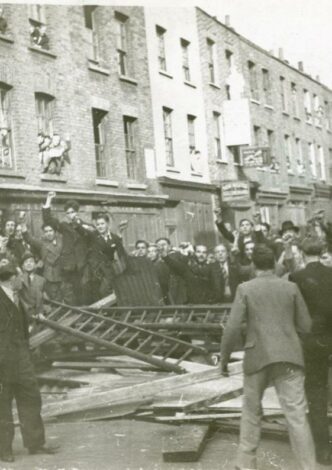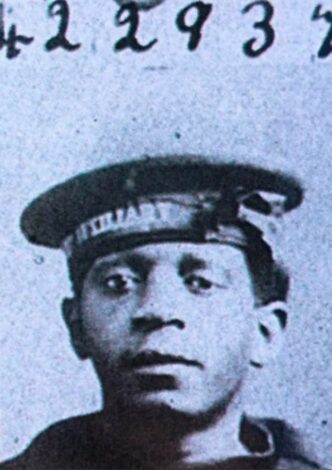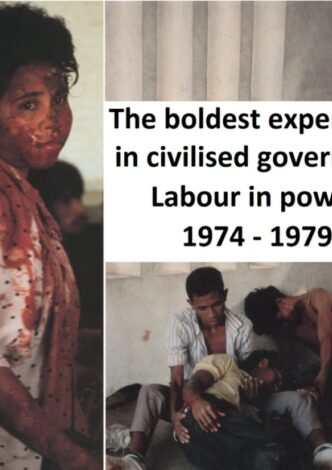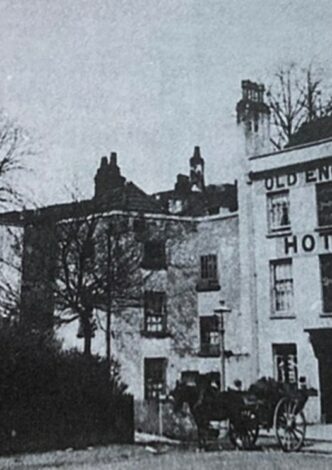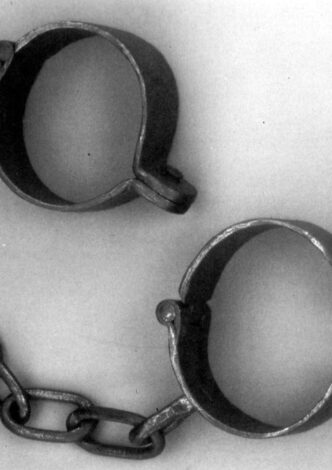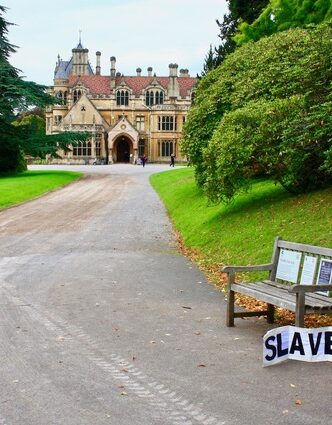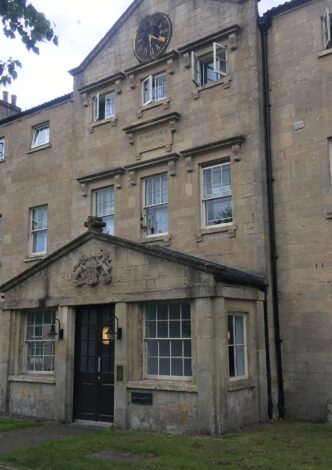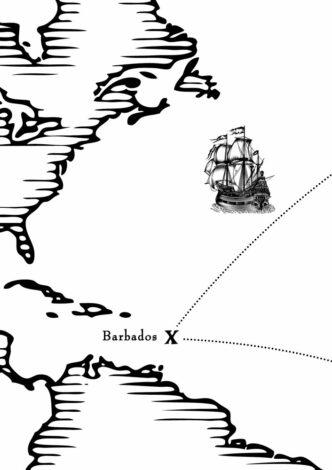‘The enemies of the working-class will arrive in yachts and limousines, not in small boats’ [banner seen in Bristol on Wednesday 7 August 2024] ‘If ever I lie dying on a Nazi street, there’ll be ten dead fascists at my feet’ [anti-fascist trad.] Introduction After a week or so of protests and riots by right wing nationalists and racists in early August, largely orchestrated on social media by far-right propaganda, lies and distortions, we are now faced by a police and government narrative […]
Introduction The so-called ‘race riots’[1] which broke out between January and August 1919 in seven ports[2], were some of the most serious and sustained instances of public disorder in twentieth century Britain. During these riots, white working – class crowds targeted black seamen, their families and black-owned businesses and property in these ports. Other black people, including military personnel and skilled workers also came under attack from white crowds. The 1919 ‘race’ riots came to […]
With the likely victory of the Labour Party in the upcoming election it seems apt to remind ourselves of what previous Labour governments actually did. Memories of 'New Labour' under Blair and Brown (1997-2010) have been popularly tarnished by the lies surrounding the disastrous invasion of Iraq and the subsequent banking collapse of 2008-09. However, other policy decisions by 'New Labour' such as the increasing privatisation of the state sector particularly in health care and education, the […]
The following article was compiled over 2022 in response to the exceptional use of riot charges against defendants in Bristol and Swansea in the spring of 2021. Introduction The introduction of the Police, Crime, Sentencing and Courts Bill (the Police Bill hereafter) in March 2021 was widely seen as an attempt by the Conservative government to clamp down on legitimate protest, particularly actions taken by climate protestors and the Black Lives Matter movement.[1] There was widespread […]
There’s a wave of interest in open-air swimming right now. Campaigners in Bristol recently led demands for wider access to swim in our rivers, lakes and even the Floating Harbour. It’s a leisure activity first popularised in the city three centuries ago by a maverick businessman, who built one of Britain’s earliest public swimming pools. Peter Cullimore, a retired journalist turned local historian, has been investigating the story of Rennison’s Baths. Introduction Buried under a GP surgery in […]
As I worked on gathering pertinent words that will appear in the index of my forthcoming book: The Journal of Captain Thomas Phillips of Brecon, the Slave Ship Hannibal, and all who Sailed on Her (1693-1695) the key word ‘museum’ appears on my list. Why had a word associated with exhibition interjected itself into a narrative of events that had occurred nearly 330 years ago? To answer this question, I refer to the plaque commissioned by Brecon Town Council in 2010 to honour the life of the slave […]
Warning – Due to the nature of the topic this article is not suitable for children The stench of the hold…was so intolerably loathsome that it was dangerous to remain there for any time…but now that the whole ship’s cargo were confined together, it became absolutely pestilential.[1] Let me begin by saying that there was nothing unique about the utterly appalling conditions that existed on the Hannibal slave ship: All merchant slave ships were floating prisons of cruelty and depravity. For the […]
This article first appeared on the BRHG Facebook page in October 2019. It is published here as a tribute to Steve Philbey who passed away in August 2022. The connection between indentured labourers in the Chinese city of Amoy (now called Xiamen) in the 1840s having the letter C burnt into their ears and a Somerset man who was for a time the richest merchant in England illuminates a story that has been overshadowed by Bristol’s involvement in the slave trade and the fortunes made by the likes of […]
Trees will grow and a wildflower meadow bloom at Bath’s Union Workhouse Burial Ground. A place of memory and reflection is emerging thanks to the work of local residents, artists and descendants of those buried there, unmemorialised, in unmarked graves. As the official memorial to a slave trader was toppled in Bristol, people in Bath sought to memorialise those officially forgotten. Bath Workhouse burial grounds do not exist on any modern map, there is no signage or plaque. Following a long […]
An often overlooked but essential element of a slave ship, such as the Hannibal, was the requirement for a large crew in comparison to the number of sailors usually required to man ordinary merchant shipping. Sailors who were to work on slavers would be recruited by any means possible. For example, some men were offered the option by a magistrate or judge of going to prison, transportation, or work as crew on a slave ship. John Newton, author of The Journal of a Slave Trader, described his crew […]
